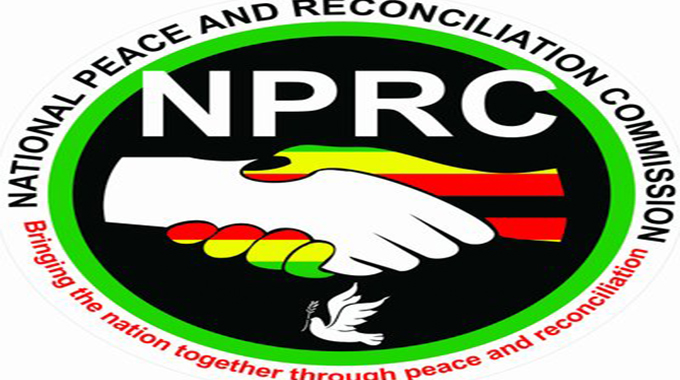NPRC concludes outreach programme

Pamela Shumba, Senior Reporter
THE National Peace and Reconciliation Commission (NPRC) is this week concluding its countrywide outreach programme, with peace committees expected to be set up from district level countrywide.
The NPRC last month embarked on a nationwide outreach programme to share with the public mechanisms and approaches that will be utilised in handling national healing issues.
The 21-day outreach programme includes the strategic priorities for 2019 such as public hearings for healing and reconciliation, mechanisms for early detection of conflicts, national dialogue facilitation, setting up of peace committees, evidence-based legislative and policy recommendations.
In an interview yesterday, NPRC spokesperson Mr Philemon Shereni said the commission’s strategic priorities should be concluded by the end of the year.
“After concluding the outreach programme, our next initiative is setting up peace committees at national, provincial and district levels.
“Once those are in place we’ll move to the next stage, which will be hearings. Dates for the hearings will be communicated in due course but all this is happening before the end of this year,” he said.
Mr Shereni encouraged the public to participate in the upcoming NPRC programmes, which seek the truth, peace and ways to move forward as a country.
The commission has met Government officials, traditional leaders, churches, arts and cultural organisations, civil society, business, academia, persons with disabilities, women and youth, among others.
President Mnangagwa signed the National Peace and Reconciliation Commission Bill into law in January, which operationalised the commission that was appointed in 2016.
The Act provided for the functions, powers, operations and removal from office of the members of the Commission, manner of conducting investigations and staffing of the Commission, among others.
The NPRC was established under Sections 251 to 253 of the Constitution to ensure post-conflict justice, healing and reconciliation, to develop programmes to promote national healing, unity and peaceful conflict resolution.
Section 252 of the Constitution states that the NPRC’s functions are to ensure post-conflict justice, healing and reconciliation.
President Mnangagwa has pledged to ensure the capacitation of the Government with resources for exhumation and reburials for Gukurahundi victims, the documentation exercise of Gukurahundi victims without identity particulars, provide medical services to victims and hold public meetings.
Last month, the NPRC witnessed the exhumation of the remains of a couple that was killed in Tsholotsho during Gukurahundi in 1983.
The exhumation was conducted by Ukuthula Trust, an expert organisation in the field of pathology, in the presence of NPRC commissioners, family members and villagers.
– @pamelashumba1












Comments